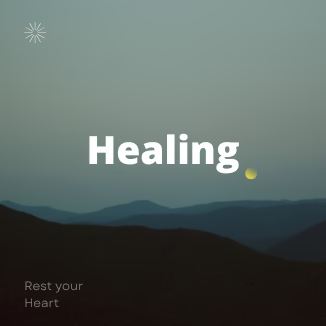“How Reiki Can Improve Your Health: Insights from Research”
November 27, 2024 | by kishoremore769@gmail.com

Reiki may provide health benefits, according to research.
Outcome: Side effects and dangers.
Reiki therapy may aid people with cancer and other chronic diseases by reducing pain, anxiety, and despair and improving sleep quality.
Reiki originates in Japanese energy healing techniques. The term “reiki” means “universal energy.” The method is founded on the notion that an initiated reiki healer transfers this universal energy through their body and hands onto the recipient to promote balance and healing.
Reiki is a supplemental or alternative healthcare method. It is not a professional medical treatment or a direct cure for disease. However, certain studies and anecdotal evidence indicate that it may benefit some people without generating negative effects.
Reiki‘s health benefits can be summarized as follows:
Reduced pain and tiredness levels
Depression, Anxiety, and Stress Relief
Improved sleep quality before surgery. Anxiety, Fear, and Pain Relief
Emotional healing and blood pressure management.
What does science say about the benefits of Reiki?
Pain and weariness relief
A 2024 systematic analysis of five studies on cancer patients found that reiki sessions dramatically reduced fatigue, pain, and tension while also improving participants’ quality of life. No side effects were recorded in any of the five investigations.
A 2024 controlled trial in 42 people with knee osteoarthritis found that participants who got 39 minutes of face-to-face reiki and two distant reiki sessions had less pain and greater well-being scores than the control group.
The well-being scores included sadness, a sense of melancholy, spiritual disruption, cognitive awareness, and general mood.
A small 2021 study of breast cancer patients receiving chemotherapy examined the effects of Reiki therapy, specifically on quality of life and fatigue. Researchers discovered that after six reiki sessions, individuals reported feeling less exhausted and having a higher quality of life than those in the control group.
Another 2021 controlled trial of 180 Turkish cancer patients investigated the benefits of reiki and guided imagery on fatigue and pain levels.
After 7 months of three weekly sessions, researchers discovered that participants in the reiki and guided imagery groups experienced less pain and exhaustion than the control group. They also found that reiki participants benefited more than those who used guided imagery.
An older 2018 study. Trusted Source examined the effectiveness of reiki therapy and physiotherapy in alleviating lower back pain in persons with herniated disks. Both therapies were equally successful in relieving pain, but the researchers decided that reiki was less expensive and, in some circumstances, produced faster results.
Depression and anxiety management
A 2022 systematic evaluation of 14 controlled trials comparing the effects of reiki to placebo discovered that reiki may have a significant therapeutic effect on some mental health issues.
“Transform Your Health After 40: Benefits of Power Yoga for Strength, Flexibility, and Wellness”
Using criteria for rating the quality of current scientific data (very low to high quality), researchers determined that there was strong evidence of Reiki’s effects on clinical stress and depressive symptoms.
They also determined that there was moderate-to-high-quality data supporting the advantages of reiki for clinical anxiety symptoms. The quality of evidence regarding reiki’s effects on nonclinical stress, burnout, anxiety, and depression was rated as poor to moderate.
A 2021 controlled study investigated the impact of Reiki on female primary caregivers of cancer patients. The trial involved two groups of caregivers. One group received Reiki, whereas the other was assured they would but did not.
The reiki group had a 45-minute weekly session for 6 weeks and got reiki at nine locations on the body, including the seven primary chakras. Participants in the control group spent 45 minutes every week with a therapist who placed their hands on the same nine locations, but they received no reiki.
Researchers discovered that people who got reiki had lower stress levels and fewer physical complaints than the placebo group after 6 weeks. Reiki has a significant relaxing impact on blood pressure and heart rate.
A 2021 systematic analysis of 11 studies spanning 30 years of research found that Reiki was consistently helpful in reducing depression, anxiety, and stress.
Sleep regulation
A 2024 controlled study of 87 cancer patients undergoing hormone therapy who were experiencing sleeplessness as a side effect discovered that 4 weeks of reiki therapy resulted in a significant increase in sleep quality.
Similarly, 2024 small research in persons with epilepsy and a 2024 controlled trial in people with multiple sclerosis discovered that reiki dramatically improved participants’ sleep quality, and hence their quality of life.
Surgery-related advantages
A 2023 controlled study of 93 individuals awaiting open abdominal surgery found that reiki therapy lowered worry and anxiety regarding the procedure, as well as pain levels, as compared to a placebo and control group. Reiki treatments also enhanced oxygen saturation levels.
A 2024 clinical study with persons awaiting cardiac surgery and a 2023 investigation in people about to have a gastrointestinal endoscopy discovered that Reiki was beneficial at lowering anxiety and discomfort before these operations.
Other Potential Benefits
According to research, Reiki may provide certain people with extra health benefits, such as:
Emotional healing refers to improved mood and coping mechanisms.
Management of Psychosomatic Disorders
Reduced unpleasant symptoms in children with cerebral palsy, such as pain, rage, and stress. Improved pain and anxiety management, as well as a sense of quality of life, for some fibromyalgia symptoms.
Enhanced sexual function and self-esteem in women experiencing sexual distress
What are the risks and side effects of Reiki?
Although research into the risks and negative effects of reiki is limited, existing evidence suggests that it is safe for the general public, including children and adults with chronic diseases.
Because each body is unique and may have different sensitivities, your reiki experience may differ from that of another. However, there is no evidence that reiki is harmful to physical or mental health.
Outcome:
Reiki is a Japanese energy healing therapy with growing evidence of its health benefits. Some examples include anxiety and depression treatment, pain management, and fatigue reduction.
According to research, reiki may be effective for children, pregnant women, and cancer patients, with no known negative effects.
Reiki is a noninvasive supplemental therapy that does not substitute medical advice or treatment.
RELATED POSTS
View all
